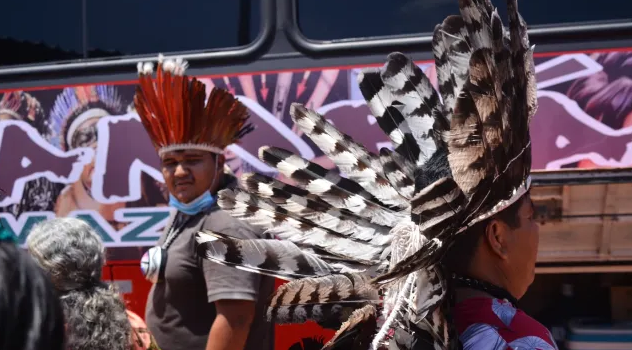
Native American Groups Call for Name and Logo Change
As the Kansas City Chiefs gear up for their Super Bowl appearance, the campaign to change their name and logo is being reignited. Two years ago, while the Chiefs aimed for a second consecutive Super Bowl win in Tampa, Florida, demonstrators gathered outside the stadium to voice their concerns. Native American activists protested the team’s name, logo, and the associated “war chant,” which involves fans mimicking a Native American tomahawk gesture.
This year, as the Chiefs return to Super Bowl Sunday for the first time in two years, protests are planned once more. The group Arizona to Rally Against Native Mascots is organising a demonstration outside State Farm Stadium in Glendale, Arizona. A news conference is scheduled for Thursday, featuring members from Kansas City Native advocacy organisations.
The fight against the appropriation of Native cultures and symbols has been ongoing for decades, impacting numerous sports teams. Many Indigenous people argue that such representations demean their communities and reinforce harmful stereotypes. In recent years, the movement has gained traction, especially after the racial reckoning following George Floyd’s murder in 2020. This has led several franchises to reassess their branding, including the Cleveland Indians, who changed their name to the Guardians and retired the Chief Wahoo logo.
Similarly, the Washington Football Team rebranded as the Commanders, dropping the Redskins name after significant pressure.
Despite ongoing dialogues, the Chiefs have not changed their name or popular fan rituals. Since 2013, they have engaged with the American Indian Community Working Group, resulting in some initiatives, such as inviting Cheyenne spiritual leaders to participate in games. In 2020, the Chiefs prohibited fans from wearing tribal headdresses and war paint at Arrowhead Stadium and modified the tomahawk “chop” to a closed fist gesture. However, Native American organisations have dismissed these changes as insufficient.
The franchise has also taken part in American Indian Heritage Month and recently featured a video with long snapper James Winchester from the Choctaw Nation, alongside centre Creed Humphrey from the Citizen Potawatomi Nation.
This year’s Super Bowl protest is particularly significant as it unfolds in a state where a quarter of the land is owned by Native Americans. The NFL has spotlighted its collaborations with Indigenous communities in Arizona. Notably, Lucinda Hinojos, an artist of Apache and Yaqui descent, is the first Native and Chicana artist to collaborate with the NFL, with her artwork featured on Super Bowl tickets and throughout the NFL Experience. Additionally, Colin Denny, a member of the Navajo Nation and a researcher at the University of Arizona, will perform “America the Beautiful” during the pre-show, using both American Sign Language and North American Indian Sign Language.










